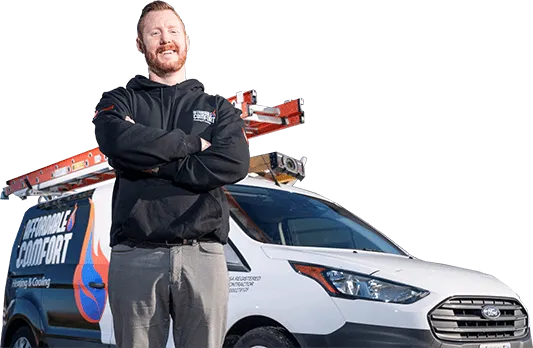As the seasons change and temperatures begin to rise, it’s time to bid farewell to your heating system and welcome the cooling comfort of air conditioning. Transitioning from heating to AC can be a bit daunting, especially if you’re a first-time homeowner or want to ensure the most efficient and cost-effective use of your HVAC system. In this blog post, we’ll discuss some essential tips for making the switch from heating to air conditioning, ensuring that you maintain a comfortable living environment while optimizing energy efficiency.
Inspect and clean your air filters
Before making the switch, inspect your HVAC system’s air filters. Dirty or clogged filters can obstruct airflow, forcing your AC to work harder, consuming more energy, and potentially causing damage. Replace or clean filters as necessary, and consider setting a reminder to check them every month during the cooling season.
Schedule a professional tune-up
A professional HVAC tune-up can help identify and address potential issues before they become costly problems. Schedule a maintenance appointment with a qualified technician to inspect, clean, and service your air conditioning system, ensuring it’s running at peak efficiency when you need it most.
Test your thermostat
Before the hot weather arrives, test your thermostat to make sure it’s working correctly. If you have a programmable thermostat, update the settings to reflect your cooling preferences and schedule. This can help you save energy and money by only cooling your home when necessary.
Check your outdoor unit
Inspect your outdoor AC unit to ensure it’s clear of debris and obstructions. Over the winter months, dirt, leaves, and other debris may have accumulated around the unit, restricting airflow and reducing efficiency. Trim back any plants or bushes that may have grown too close, and make sure the unit has ample space to breathe.
Seal your home for energy efficiency
To keep the cool air inside and the hot air out, make sure your home is well-sealed. Check for drafts around windows and doors, and use weather-stripping or caulk to seal any gaps. Inspect your home’s insulation, particularly in the attic, to ensure it’s adequate for your climate.
Invest in energy-efficient appliances
If your air conditioning system is older or less efficient, consider upgrading to an Energy Star certified model. Energy-efficient AC units can save you money in the long run by consuming less electricity while still providing the same level of comfort.
Utilize ceiling fans
Ceiling fans can help circulate the cool air produced by your air conditioning system, reducing the need for your AC to work harder. Make sure your fans are set to spin counter clockwise during the summer months to help push cool air downward.
Transitioning from heating to AC doesn’t have to be a headache. By following these tips, you can ensure a smooth switch and maintain a comfortable, energy-efficient living environment. Remember to inspect and clean your filters, schedule a professional tune-up, test your thermostat, and take steps to maximize your home’s energy efficiency. With a little preparation, you’ll be ready to welcome the warm weather and keep your home cool all summer long.












